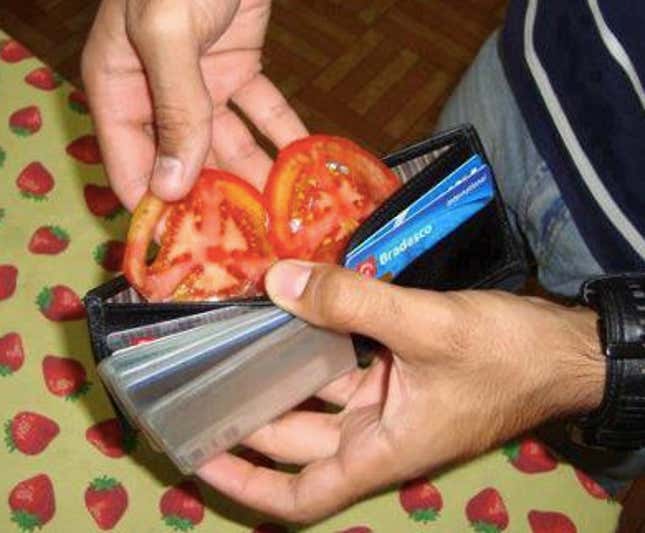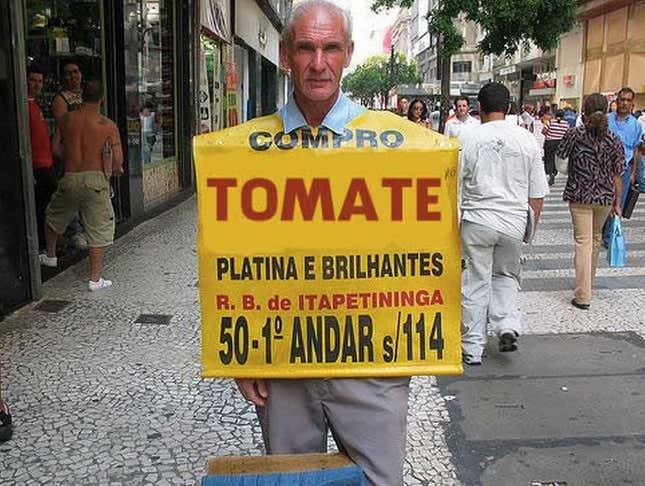Surging tomato prices are spelling trouble for Brazil’s president, Dilma Rousseff. Much like onions in India or staple foods in other countries, the cost of the tomato signals potentially destabilizing inflation in Brazil.

According to the country’s statistics office, the price of the fruit has more than doubled in the past year—the result of an extended rainy season, demand, and high fuel prices. It’s also a symptom of Brazil’s problem with creeping inflation, which reached 6.6% in March. That’s lower than that of some emerging economies but still above the government’s target of 4.5% plus or minus two percentage points.
The government has since declared a “war on inflation,” a sensitive topic in Brazil, which had inflation as high as 5,000% a year only a decade ago. Aside from smuggling tomatoes—as well as onions—from neighboring countries, or taking the item off restaurant menus, residents have been posting jokes and photos to the Facebook page “Tomate Caro” or “Expensive tomato”:

But the impact could go further than jokes online. Rousseff faces reelection next year and is coming under fire from opposition politicians capitalizing on public anger. Last week, lawmakers wheeled carts full of tomatoes and other staples into Brazil’s House of Representatives protesting food inflation. The price of the cesta básica, or basic basket, which includes carrots, potatoes and flour, rose in almost all Brazilian state capitals last month.
![The back of a truck reads: “Don’t give me [i.e., flash] your headlights. Give me tomatoes.”](https://i.kinja-img.com/image/upload/c_fit,q_60,w_645/b4e1848d3e1f95147621f2ce3f8a4010.jpg)